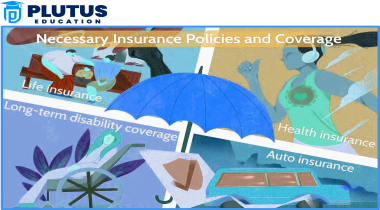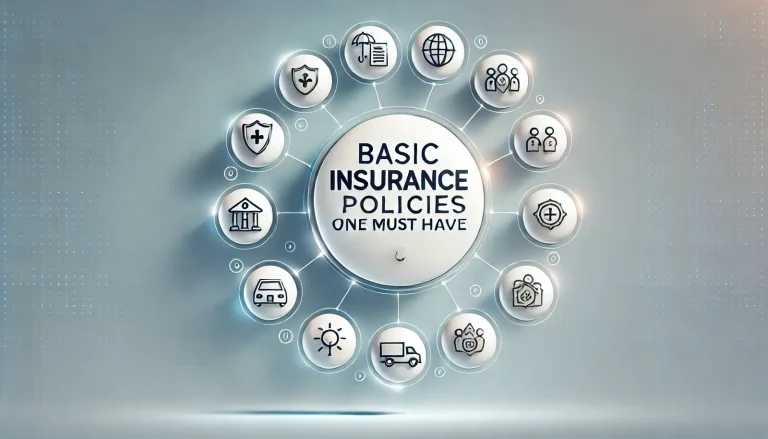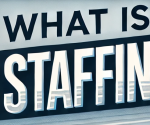Life is full of uncertainty, and the financial implications of unforeseen events can be too overwhelming to handle. A medical emergency from a natural calamity can arrive when you are least prepared for it. It has become essential for one to acquire basic insurance policies as they ensure a safety net to provide comfort to you and your loved ones during crisis periods. This article goes deeper into the critical insurance policies that you should have, explaining the importance, features, and ways in which these can protect your financial future.
Types of Basic Insurance Policies You Need
Insurance cannot be done the same way for everyone. Every person is different and has a different lifestyle, financial responsibilities, and risk tolerance. However, some common policies are essential to most of the solid financial plans: Let’s discuss them in more detail.
Life Insurance
Life insurance is the cornerstone of financial security. It guarantees that your loved ones are protected financially in case of your untimely death. Apart from emotional loss, the financial burden on dependents can be heavy, and therefore life insurance forms an indispensable part of financial planning.
The primary purpose of life insurance is to replace the income lost when the insured person passes away. It ensures that dependents can maintain their standard of living, pay off outstanding debts, fund education, and even manage daily expenses. Life insurance also provides peace of mind, knowing that your family will be cared for financially even in your absence.
Types of Life Insurance Policies
- Term Life Insurance: Term life insurance is the simplest and most affordable type of life insurance. It offers coverage for a specific period, such as 10, 20, or 30 years. If the policyholder dies within the term, the beneficiaries receive the death benefit. However, it has no cash value or maturity benefits.
- Whole Life Insurance: Whole life insurance provides coverage for the insured’s entire lifetime. In addition to a death benefit, it includes a savings component that builds cash value over time. Policyholders can borrow against this cash value or surrender the policy for the accumulated amount.
- Endowment Policies: Endowment plans combine life insurance with savings. The policyholder or their beneficiaries receive a lump sum amount upon maturity or in case of death during the policy term.
- ULIPs (Unit Linked Insurance Plans): ULIPs are a mix of insurance and investment. A portion of the premium is allocated for life insurance, while the rest is invested in funds of your choice, offering growth potential along with risk cover.
Health Insurance
Medical expenses can really drain your pocket, making health insurance one of the most crucial financial products you should own. It covers your hospitalization, surgery, and even preventive healthcare. This means that you can be treated with the best medical care without worrying about the costs.
Health insurance helps act as a buffer against increasing healthcare costs. A single hospitalization can also create financial pressure, especially among families who do not have proper coverage. A comprehensive health insurance policy makes sure you do not have to cut corners on quality of care for lack of affordability.
Types of Health Insurance
- Individual Health Insurance: Covers medical expenses for a single person. It’s ideal for those without dependents or with unique healthcare needs.
- Family Floater Plans: Under a family floater plan, a single sum insured covers the entire family. It’s cost-effective and provides flexibility in utilizing the sum insured among family members.
- Critical Illness Insurance: These policies offer a lump sum benefit upon the diagnosis of specific critical illnesses like cancer, heart attack, or stroke. The payout can be used for treatment, recovery, or any other expenses.
- Group Health Insurance: Often provided by employers, group health insurance offers coverage for employees and sometimes their families. While beneficial, these plans might not offer sufficient coverage, making individual policies essential.
Key Features of Health Insurance
- Cashless Treatment: Partnered hospitals provide treatments without upfront payments.
- Pre and Post-Hospitalization: Covers medical expenses incurred before and after hospitalization.
- Daycare Procedures: Includes surgeries and treatments not requiring extended hospitalization.
| Plan Type | Key Features | Ideal For |
|---|---|---|
| Individual Plans | Covers single individual | Singles, young professionals |
| Family Floater | Covers the whole family | Families |
| Critical Illness Plans | High payout for specific illnesses | Risk-prone individuals |
| Group Health Insurance | Offered by organizations | Employees |

Long-Term Disability Coverage
Disabilities can either render you unable to work, thus not earning a stable income; long-term disability insurance assures you of your continuity while away due to injury or illness by replacing part of your income.
While life and health insurance is well known, disability insurance is more likely to be ignored. But it may literally break your bank if you are the sole breadwinner. Disability insurance fills in the gap, so you can continue to meet all your monetary obligations like mortgage payments, tuition fees, and even daily necessities.
Features of Long-Term Disability Coverage
- Income Replacement: Typically replaces 60-80% of your income, helping you sustain your lifestyle.
- Flexible Terms: Coverage options vary from a few years to retirement age.
- Rehabilitation Support: Includes resources for recovery and reemployment.
| Key Feature | Benefit |
|---|---|
| Income Replacement | Regular financial assistance |
| Rehabilitation Benefits | Support for recovery efforts |
| Partial Disability Cover | Helps during reduced capacity |
Without this coverage, financial independence can quickly erode in the face of long-term health challenges.
Auto Insurance
Auto insurance covers your vehicle and your finances. Be it a small collision or a huge accident, auto insurance will help you not pay the bills by yourself.
Auto insurance is mandatory for all vehicle owners in many countries, including India. It not only covers your vehicle but also protects you from liabilities due to damage or injury to others. Comprehensive coverage also protects against theft, fire, and natural disasters.
Types of Auto Insurance Policies
- Third-Party Liability Insurance: This mandatory insurance covers damages or injuries caused to others. It does not cover your vehicle’s damages.
- Comprehensive Insurance: This plan covers both third-party liabilities and damages to your vehicle. It also includes coverage against theft and natural calamities.
- Collision Insurance: This policy specifically covers damages to your vehicle resulting from collisions.
- Personal Injury Protection (PIP): PIP covers medical expenses for you and passengers in your vehicle, irrespective of fault.
| Policy Type | Coverage Provided | Who Needs It |
|---|---|---|
| Third-Party Liability | Covers others’ damages | Mandatory for all owners |
| Comprehensive Insurance | Covers own + third-party | Owners seeking full coverage |
| Collision Insurance | Repairs due to collisions | Frequent drivers |
| Personal Injury Protection | Medical bills post-accident | Safety-conscious drivers |
Auto insurance is not just a legal requirement but a smart financial decision that protects your assets.
Basic Insurance FAQs
What is the most basic insurance policy I should have?
A life insurance policy is the most basic and essential policy to secure your family’s financial future in case of unexpected demise.
Why is health insurance critical even if I am young and healthy?
Health insurance prepares you for unexpected medical emergencies and helps manage rising healthcare costs without depleting your savings.
Can I skip auto insurance if I rarely drive?
No, auto insurance is mandatory, and even infrequent driving carries risks. A third-party liability policy is the bare minimum required by law.
How much disability insurance should I consider?
Aim for coverage that replaces at least 60-80% of your current income to maintain your financial stability during a disability.
Does comprehensive auto insurance cover theft?
Yes, comprehensive insurance includes protection against theft, fire, and natural disasters.


